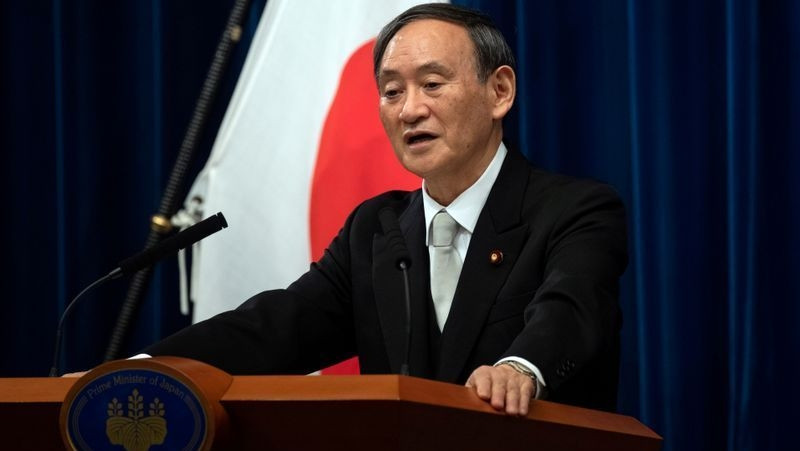Together affirming the importance of bilateral cooperation, the two sides agreed to soon end the “cold period”, bringing their bilateral relationship back to orbit, contributing to both the stability and development of the region.
The phone call on September 24 was the first conversation between PM Yoshihide Suga and President Moon Jae-In and the latest high-level exchange between the two neighbouring countries, after leaders of the two countries met in Chengdu (China) in December 2019.
After the US President, the President of the RoK is the second leader that PM Suga has had a discussion with since he officially took office. This move sends a message of the new Japanese leader's priorities.
PM Suga took over the leading role in the context of “cold” relations between Japan and the RoK due to various disagreements. The two countries have fallen into a persistent dispute over historical and commercial issues, especially the issue of Korean workers being forced to work in Japanese companies in the 1919-1945 period.
The controversy escalated from October 2018, after the Supreme Court of the RoK ordered the Japanese company to compensate forced labour victims. The RoK Government confirmed that it did not interfere with the court’s ruling under which the assets of Japanese companies in the RoK would be liquidated to cover Korean workers' compensation. However, the Japanese side disagreed, saying that the agreement to normalise relations between the two countries included the above compensation.
Tensions were ramped up in July 2019, when the Japanese government issued an order to tighten restrictions on the export of high-tech material used in smartphones and chips to the RoK. Tokyo also removed the RoK from its “white list” which includes countries enjoying Japan’s preferential trade status. Tokyo’s move caused a wave of protests calling for a boycott of Japanese products in the RoK.
Seoul retaliated with a decision to “suspend” the extension of the military intelligence-sharing pact between the two countries (known as GSOMIA). The RoK also warned that this important agreement could be terminated at any time.
Taking office in the context of turbulent Japan-RoK relations, PM Suga affirmed that he would maintain the key policies of his predecessor, but said that it is time for Japan to fix its ties with the RoK. In his phone call with the President of the RoK, the Japanese PM emphasised that, despite many disagreements, the two countries could not give up good neighbourly relations, but should maintain cooperation for the common good and coordinate to respond to common challenges.
The Japanese leader’s message to promote relations with its neighbour is considered to be in line with the current reality. The recent disagreements and long-standing tensions have seriously affected relations between the two countries, especially in terms of economics and trade. Export value in 2019 of both the RoK and Japan to each other's markets decreased, at 6.9% and 12.9%, respectively, compared with the previous year.
In the context of the COVID-19 pandemic having profound effects on the global economy and trade, the need to remove barriers and restore trade flows has become even more of an imperative. With export-based economies such as the RoK and Japan, this need is even more urgent.
Japan - RoK cooperation, as well as US - Japan - RoK trilateral coordination, has an important role in the efforts to denuclearise and build a sustainable peace on the Korean peninsula. The improvement of Japan - RoK relations is considered a positive step, expected to help promote the restoration of dialogue to restart the stagnant denuclearisation process.
Opportunities have opened up, not only for a new period of bilateral cooperation between “the Land of the Rising Sun” and “the Land of Kimchi”, but also for the security, stability and development of Northeast Asia.
















